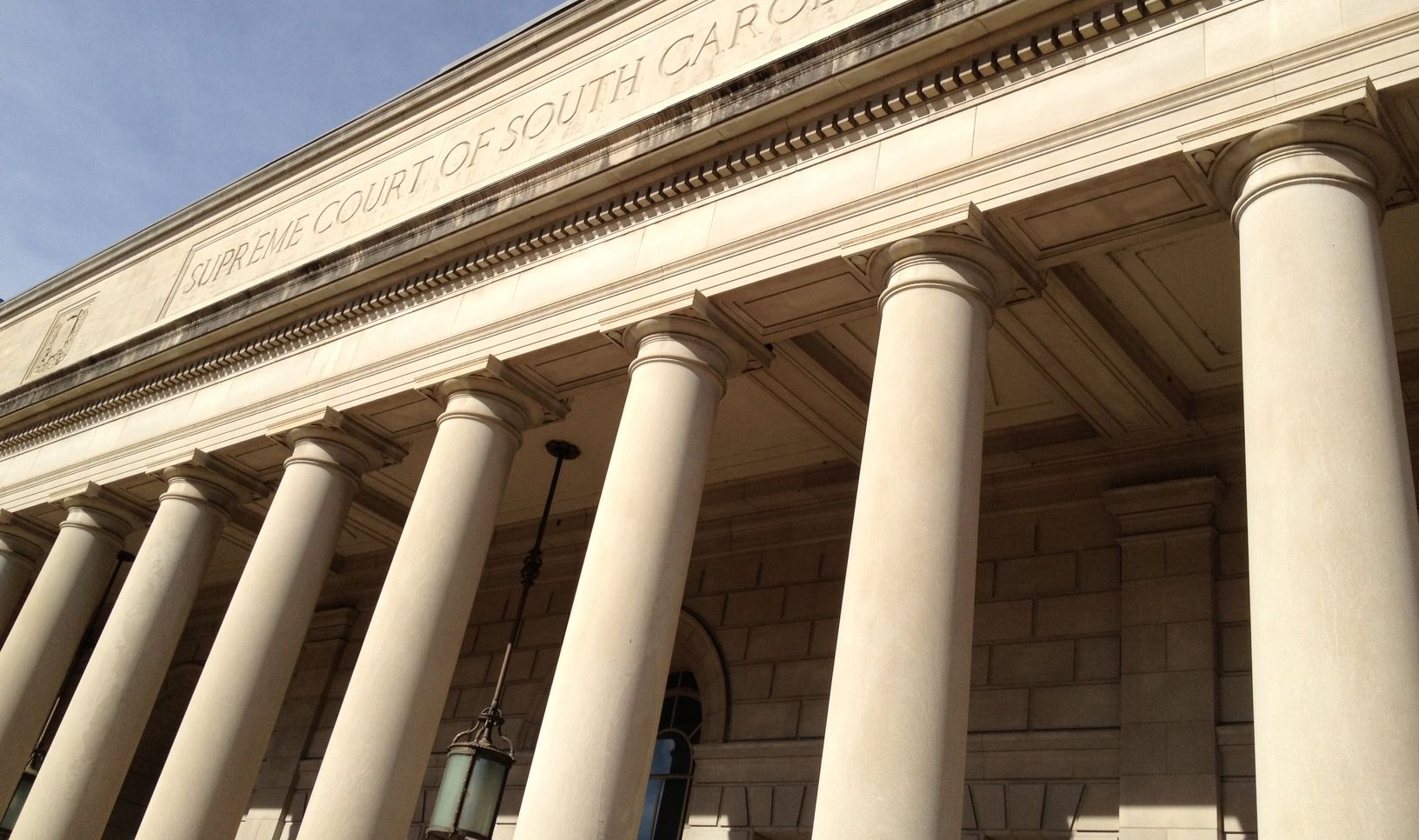|
Getting your Trinity Audio player ready...
|
One of the tricks to legislating is to ask for more than you want on the front end and then negotiate your way backward – knowing you will likely wind up with only a small percentage of what you originally sought.
That’s Politics 101 … but this common sense maxim is routinely lost on conservative “reformers,” who far too often begin their negotiations begging for table scraps as opposed to insisting on real change.
Along the way, they routinely fall prey to establishment platitudes including …
“Politics is the art of the possible.”
“Don’t let perfect be the enemy of good.”
“This legislation is a good starting point.”
Blah, blah, blah …

***
In the battle to reform the way South Carolina chooses judges – an issue which landed on our radar in a big way again this week – my news outlet has previously staked out some aggressive ground. And with good reason, too. Violent crime is out of control in the Palmetto State. Victims’ rights – purportedly enshrined in the state constitution – are being trampled on left and right. State lawmakers who should be closing loopholes for violent criminals seem far more interested in opening new ones.
And why not? They profit from the current system … which probably explains why they are so intent on defending it.
In doing battle against this failed, corrupt system, I do not believe there is any room (or any time) for half-measures. South Carolina does not need – and cannot afford – to tinker around the edges of institutional injustice. Instead, such injustice must be immediately eradicated.
That means completely overhauling our current method of judicial selection. Now.
Accordingly, I have argued South Carolina should embrace the popular election of judges as opposed to the current method – which consists of powerful lawyer-legislators picking their preferred candidates via a secretive committee and ramming those nominees through rigged legislative “elections.”
Some in the trial lawyer lobby have suggested popular election is a bridge too far – and far too political. I am not unsympathetic to those concerns, irrespective of their pro-status quo origin. However, I can hardly imagine any system being more susceptible to corrosive political influences than the one presently in place.
In the spirit of compromise, though, I would humbly suggest a “hybrid” method for consideration …
Under this "hybrid” plan, judges would be nominated by the governor based on the recommendations of a reconfigured judicial merit panel - one which would be comprised (among other members) of a sheriff, a police chief, a solicitor, a defense attorney, a family law attorney, a retired judge and (most importantly) a victims’ rights advocate.
Once the governor submitted a nominee, this candidate would receive an up-or-down "advice and consent” vote from the full S.C. General Assembly - with two key caveats: First, any lawmaker practicing law in the Palmetto State would be prohibited from participating in any judicial election. Ever. Second, after booting the lawyers from the room, I would add weight to the votes of state senators based on the fact they represent larger populations than state representatives.
Once a judge is confirmed, the third and most important component of the "hybrid” model would take effect - public accountability. All sitting judges - at every level - would be subjected to petition-based recall elections as well as quadrennial retention elections. Neither the recall nor retention votes would pit them against opponents, mind you ... these would simply be "yea” or "nay” votes from the public as to whether the judge kept their seat or not. Assuming the answer was "nay,” the gubernatorial appointment process outlined above would recommence.
***
RELATED | SOUTH CAROLINA’S INJUSTICE SYSTEM STRIKES AGAIN
***
I suspect this "hybrid” proposal - which incorporates input from the executive branch, legislative branch and the public - will produce the same cringes and castigations from the trial lawyer lobby as my previous column on judicial election. Sadly, these status quo backers - who are relying on the continued support of powerful lawyer-legislators like House speaker Murrell Smith and Senate judiciary chairman Luke Rankin - have made it clear they will brook no deviation from the current system.
And they have deep pockets, people ...
Also, the "hybrid” model - like public election - would require a change to the constitution. Which means two-thirds of each chamber of the legislature must approve it in order of it to even appear on the statewide ballot.
Still, we cannot be deterred. Or discouraged. Those of us who believe in justice, fairness, judicial efficiency, public safety and the rights of victims must push harder than ever to fix this system after lawmakers once again refused to take action.
"The most immediate and critical need is to make sure this power is permanently removed from the hands of politicians at the S.C. State House as soon as possible,” I wrote back in September 2021. "Lawmakers have abused this authority for their own selfish ends for far too long. Enough is enough.”
***
ABOUT THE AUTHOR ...

Will Folks is the founding editor of the news outlet you are currently reading. Prior to founding FITSNews, he served as press secretary to the governor of South Carolina. He lives in the Midlands region of the state with his wife and seven children.
***
WANNA SOUND OFF?
Got something you’d like to say in response to one of our articles? Or an issue you’d like to proactively address? We have an open microphone policy here at FITSNews! Submit your letter to the editor (or guest column) via email HERE. Got a tip for a story? CLICK HERE. Got a technical question or a glitch to report? CLICK HERE.



1 comment
Popular election of judges (either original election or retention election) is a terrible idea.
There are significant drawbacks to judicial elections. First, this system requires that any prospective judge subject himself to the vicissitudes and indignities of the election process. This means assembling a campaign committee, raising campaign contributions, appearing before various groups to solicit votes, and spending significant amounts of time on the “campaign trail”. These issues assume even greater importance when the position sought covers a large geographic area (appellate court judges), and especially when it involves the entire state (Supreme Court justices). It is highly unlikely that the most qualified and best suited candidates (who, ideally, would be individuals having significant experience in the practice of law, possibly with some academic experience added in) would subject themselves to this process. Indeed, the process seems designed to attract the least qualified candidates, not the best.
Nearly all campaign contributions in judicial elections come from those who have a direct pecuniary interest in the outcome: the lawyers who practice in those courts. The end result is that in states with judicial elections the process is dominated by the trial lawyers and their professional associations. Nearly all judges come from among their ranks, and all have unspoken obligations to those responsible for their position. These courts become noticeably skewed in favor of the plaintiffs’ bar, and the even-handed administration of justice (and thus the reputation of the state itself) suffers as a result.
Finally, and perhaps most important, the general public has no means of forming a reasoned judgment as to the relative merits of judicial candidates. The average elector knows little or nothing of the qualities which a good judge should possess, or even what constitutes appropriate “judicial temperament”. The general public simply has no rational basis for evaluating or choosing judges. If they give it any thought at all, electors might rely on the recommendations of persons of authority (other judges, the state Bar Association, political leaders, etc.). But as a practical matter, if the elections are partisan most people will simply vote for the candidate bearing the imprimatur of their preferred political party, and if they are nonpartisan for most people the choice is simply an uneducated guess: which candidate has a familiar name or is the most photogenic.
Many of the defects inherent in judicial elections also apply to judicial retention elections, in which sitting judges run for re-appointment to their seats. Most people pay little attention to judges anyway, so retention elections tend to be mere rubber stamps of the incumbent since there isn’t even an opponent to spark thought about the candidate. The only exception to this is where a specific judge has been responsible for a decision which sparked popular outrage, or aroused the ire of a vocal special-interest group which makes removal of that judge its objective. However, popular opinion (or the desires of advocacy groups) is not necessarily the best, or even an appropriate, measure of judicial competence. Judges are required to enforce the laws and adhere to the Constitution, and the results are not always popular. The specter of an impending election should have no bearing on judicial decisions, but that result is inevitable in judicial retention election states.